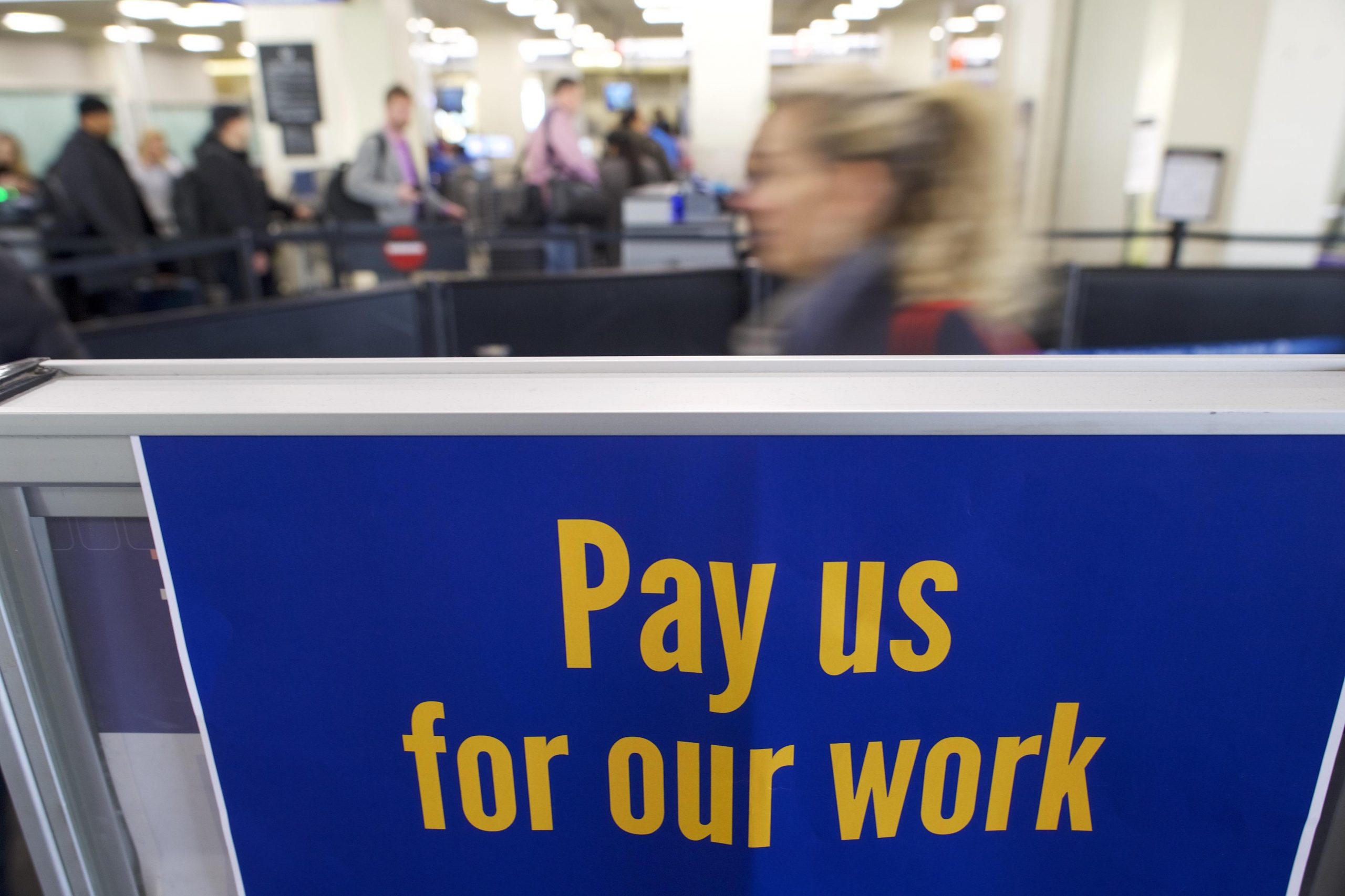The threat of a government shutdown is a recurring issue in American politics. When the legislative and executive branches cannot agree on funding bills, parts of the federal government can shut down, leaving hundreds of thousands of federal employees unsure if they will receive their next paycheck. However, legislation in recent years has provided more certainty for federal workers during shutdowns
The Threat of a Shutdown
When Congress doesn’t pass a bill by October 1 that funds federal agencies and programs for the next fiscal year, the government shuts down. Without approved funding, those agencies must begin shutting down operations and furloughing employees.
Shutdowns create significant uncertainty for the over 2 million civilian federal employees. In the past, furloughed workers had to wait for Congress to retroactively approve their back pay once a shutdown ended. Employees required to work through a shutdown, such as public safety officers, faced the prospect of showing up without the guarantee of timely pay.
Shutdowns also impact government contractors, who may never recoup lost income. The longer a shutdown lasts, the more expensive it is for the government, businesses, and people in the U.S. who depend on federal services.
There have been multiple shutdowns over political budget impasses in recent decades. A 16-day shutdown in 2013 cost the economy $24 billion, according to Standard & Poor’s. In 2018-2019 a record 35-day partial shutdown further highlighted the consequences of governing by crisis.
Guaranteeing Retroactive Pay
Following the difficult 2013 and 2018-2019 shutdowns, Congress took action to ensure employees would receive back pay after future funding gaps.
-
The Government Employee Fair Treatment Act of 2019 statutorily guaranteed retroactive pay for all federal employees impacted by shutdown furloughs. Employees are paid as soon as possible after regular appropriations are approved.
-
This back pay is for both employees who were on leave and those who had to work. During past shutdowns, many workers kept going to protect people and property. This included people in public safety, national security, and benefits administration.
-
Contractors are still not guaranteed compensation for work missed. Some lawmakers have proposed extending shutdown pay protections to contractors, who conduct important work across the government.
By law, members of Congress continued to receive pay during shutdowns because their compensation is funded through permanent appropriations. Some legislators have introduced bills to prevent lawmakers from being paid during a shutdown, but none have become law.
The statutory back pay guarantee came after a review of how the Antideficiency Act, which governs agency shutdown procedures, was interpreted over time. Initially agencies had more leeway to obligate funds to pay excepted employees during a lapse. Stricter interpretations left all employees initially unpaid until funding was approved.
Avoiding Debt Default Impact
More recent legislative proposals aim to protect federal employees’ financial health during not just shutdowns but also potential federal debt limit crises.
If Congress fails to raise the statutory debt ceiling, the government may default on financial obligations, which could delay federal paychecks, retirement benefits, and more. The debt limit does not authorize new spending; it covers borrowing to pay for already-approved policies.
-
In early 2023, Democrats reintroduced the Federal Employees Civil Relief Act. It would shield federal workers from monetary penalties if they fall behind on financial obligations due to a shutdown or debt limit breach.
-
Protections would temporarily prevent evictions, foreclosures, repossessions, and loss of insurance coverage. Employees’ credit could not be negatively impacted during the covered period.
-
The bill extends safeguards through 30 days after the fiscal issue is resolved. The aim is to avoid federal employees facing private financial consequences because of public policy failures.
While shutdowns remain possible due to partisan disagreements, federal employees now have greater certainty that their pay will not be indefinitely delayed. Efforts continue to limit the negative impacts on the workforce and economy if the government lacks funding to operate.
Key Takeaways
-
Shutdowns occur when Congress does not pass legislation to fund the government for the next fiscal year. Lack of funding forces agencies to close and furlough staff.
-
The 2019 Government Employee Fair Treatment Act guarantees back pay for furloughed and excepted employees after a shutdown ends.
-
Recent proposals would also protect federal workers from monetary penalties if they fall behind on bills due to shutdowns or debt limit crises.
-
Providing pay continuity during shutdowns limits uncertainty and damage to the economy. But underlying partisan conflicts often continue generating shutdown threats.
Looking Ahead
While shutdowns impose costs on government operations, businesses, and individual Americans, the guaranteed back pay at least provides federal employees with certainty that their income will be restored. Yet the ideal solution is for Congress and the White House to negotiate spending levels through the normal appropriations process, avoiding disruptions altogether.
As long as shutdowns remain a risk during partisan conflict, legislators will likely keep examining ways to limit the damage. Ensuring all federal workers receive their pay would be a positive step. But undoing the harm of shutting down services that citizens rely on remains difficult, further encouraging compromise to keep government open.
Government shutdown: Trump signs bill promising back pay to federal workers
FAQ
Are employees paid during a government shutdown?
What is the Mccarthy shutdown act?
Is Congress still paid during shutdown?
Is the bill to end telework for federal employees?

